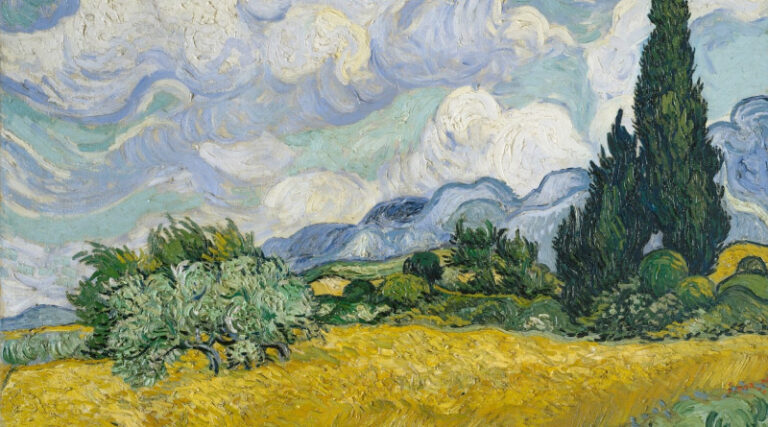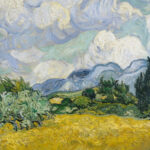Matthew 24:37-39: “For just as the days of Noah were, so the coming of the Son of Man will be. For…they were eating and drinking, marrying and giving in marriage…they did not understand until the flood came…so will the coming of the Son of Man be.”
Summary:
In Matthew 24:37-39, Jesus warns that the coming of the Son of Man will resemble the days of Noah, when people were preoccupied with everyday activities and were caught unprepared by the flood. This serves as a reminder that the end times will come suddenly and unexpectedly, urging believers to remain vigilant and live faithfully. Similarly, the Parable of the Fig Tree in Matthew 24:32-35 teaches that just as the bud of a fig tree signals the approach of summer, various signs, as detailed in Matthew 24:5-14, will signal the nearness of Jesus’ return. This parable, along with related teachings, emphasizes the importance of readiness, faithfulness, and the urgency to live according to God’s word, as no one knows the exact timing of the end.
Parable of The Fig Tree
Matthew 24:32-35 “From the fig tree learn its lesson: as soon as its branch becomes tender and puts out its leaves, you know that summer is near. So also, when you see all these things, you know that he is near, at the very gates. Truly, I say to you, this generation will not pass away until all these things take place. Heaven and earth will pass away, but my words will not pass away.”
Analysis
In its context, the Parable of the Fig Tree is tucked inside a larger discourse between Christ and His disciples, which begins in Matthew 24:3 with, “Tell us, when will these things happen, and what will be the sign of Your coming and the end of the age?” and ends in Matthew 25:13 with, “Therefore, stay awake, for you do not know the day nor the hour.” It contains the parable of the Fig Tree and the Ten Virgins. These two parables, as well as the Parable of the Watchful Servants in Luke 12:35-48 and the Rich Fool in Luke 12:16-21 all encourage believers to be vigilant, watchful, and prepared to recognize the signs of end times and to live faithfully according to God’s Word.
Like all the other parables we’ve covered, the parable’s brevity betrays the depth of its significance.
Let’s begin with one of the main thrusts of the parable, which is to live faithfully with the resources of our time. James 4:14 addresses that our time is limited when it states, “Yet you do not know what tomorrow will bring. What is your life? For you are a mist that appears for a little time and then vanishes.” Time management gurus have warned repetitively, “Time is the one resource you cannot get back”? Many are incredibly concerned about time management regarding their careers and life ambitions but are entirely unaware of how it applies to their spiritual circumstances.
This, then, addresses the issue of faithfulness—living in obedience to God’s word while managing our resources.
It also implies the uncertainty of when we will run out of time, individually and collectively. This is the concept in Luke 12:16-21’s Parable of the Rich Fool, who says in part, “…I will tear down my barns and build larger ones, and there I will store all my grain and my goods. And I will say to my soul, ‘Soul, you have ample goods laid up for many years; relax, eat, drink, be merry.’ “But God said to him, ‘Fool! This night your soul is required of you, and the things you have prepared, whose will they be?’” It is also the reason James 4:15 warns, “Instead you ought to say, ‘If the Lord wills, we will live and do this or that.’”
The second principle is the issue of living in a state of readiness because the time is near—but how close is it?
Matthew 24:36 advises, “But concerning that day and hour no one knows, not even the angels of heaven, nor the Son, but the Father only.” Would you want to know exactly when? If you remember the Y2K fiasco, notice of the end of time would be Y2K on steroids. Knowing that the end is near should be sufficient motivation to concentrate our efforts on obedience and sharing the gospel of salvation. Knowing the exact time would cause mass hysteria, and I believe God conceals this to protect us.
The statement that “Heaven and earth will pass away, but my words will never pass away” underscores the absolute reliability and eternal nature of Christ’s teachings. Despite the seeming permanence of the physical world, Jesus’ words are more enduring and will always be completed.
As in the lesson of the Fig Tree, the book of Matthew lays out signs of the end time and the coming of the Lord. As such, we read the following:
Matthew 24:5 states, “For many will come in My name, saying, ‘I am the Christ,’ and will deceive many.” Although such deceptions have been present throughout history, they will increase in frequency and intensity as the end approaches. Looking back over history, it’s not difficult to see that the advancement of false prophets is on the rise.
Matthew 24:6 warns, “…you are going to hear of wars and rumors of wars…” The aggressive rise of Russia, China, North Korea, and Iran is a clear indication of this warning.
Matthew 24:7 indicates, “…there will be famines and earthquakes.” Whether the trend is increasing or consistent, the Bible suggests the existence of famines and earthquakes, which is undoubtedly true.
Matthew 24:9 stipulates, “…you will be hated by all nations because of My name.” Because of the audience, “you” would have to include Jews and Believers, both of which are seen, even recently, as being the object of increasing hatred across the globe.
Matthew 24:10-12 says, “…many will fall away…hate one another…deceive many…[and] most people’s love will grow cold.” Evidence of hatred, deceit, and love growing cold is pervasive as corruption, murder, and theft are out of control, the media and elite lie without regret, and devotion to abortion is proclaimed a political platform.
Matthew 24:14 heralds that “this gospel of the kingdom shall be proclaimed in the whole word as a witness to all the nations, and then the end will come.” It could be argued that the previous five signs have existed to one degree or another throughout history, yet this final sign has only recently been technologically possible. Additionally, Romans 11:25 refers to “…the full number of the Gentiles [having] come in.” Since Romans 10:17 promises that “…faith comes by hearing and hearing by the word of God,” it is logical to conclude that shortly, someone will be the last person to hear the gospel and accept salvation, and then the end will come. The Rapture of the Saints, the 7-Year Tribulation period, and the 2nd Coming of Christ will all follow in sequence. There will be a massive harvesting of believers during the Tribulation period, but the last Church age believer will indeed usher in the end times.
Thus, the Parable of the Fig Tree teaches us to live faithfully, recognize that time is a limited resource that can never be recovered, and be aware of the signals showing when the end is near. We do know this; all the signs are present, indicating that it might happen directly.









